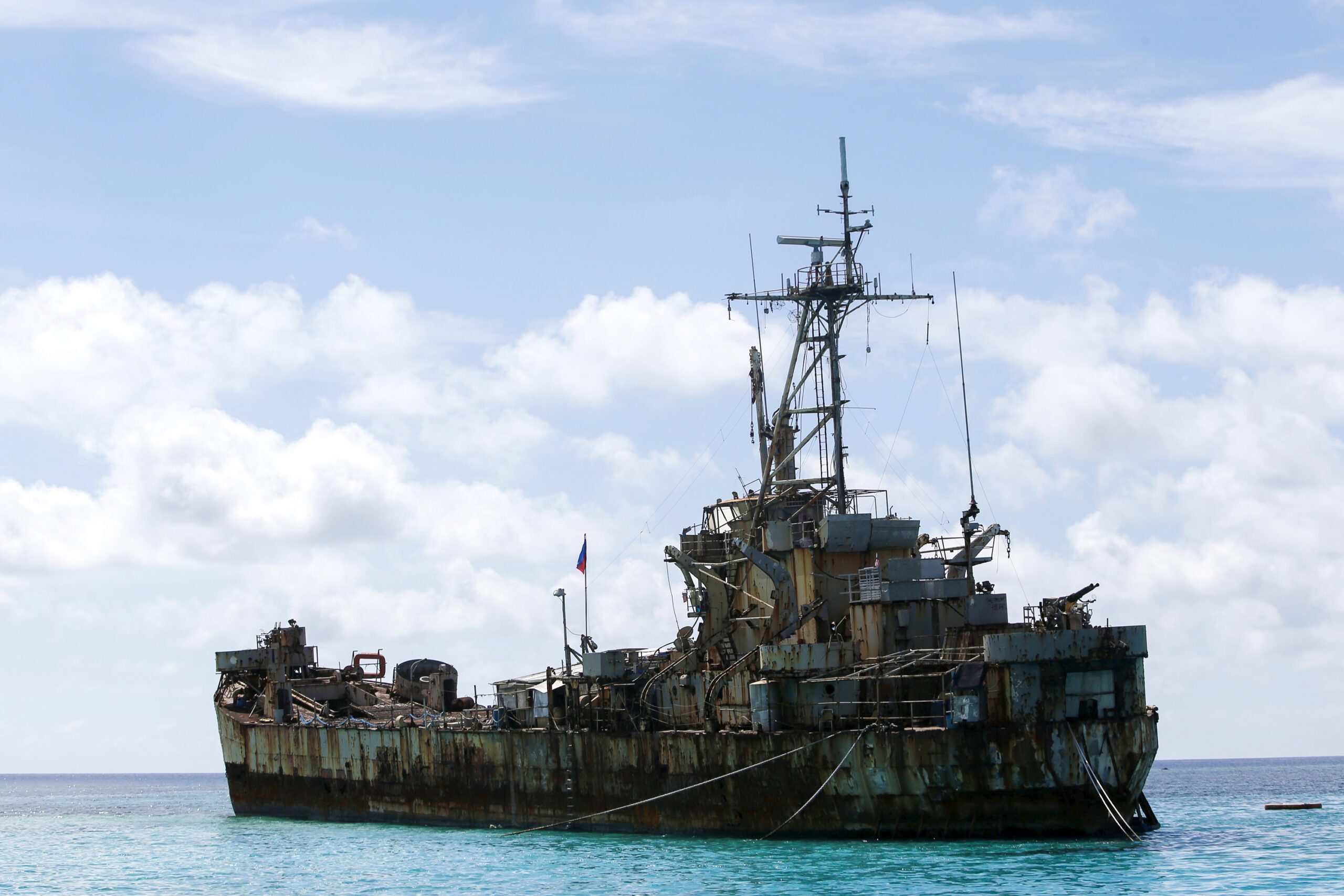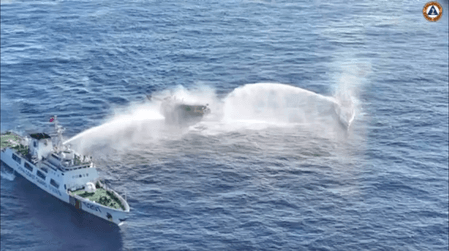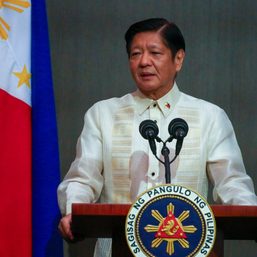SUMMARY
This is AI generated summarization, which may have errors. For context, always refer to the full article.

MANILA, Philippines – The United States State Department on Tuesday, June 18 (Monday, June 17 in Washington) reaffirmed that armed attacks on Philippine armed forces and public vessels could be basis to invoke the Mutual Defense Treaty between Washington and Manila, a day after a “ramming and towing” incident in the West Philippine Sea.
State Department Spokesperson Matthew Miller reiterated the terms of the treaty both in a statement on “US Support for the Philippines in the South China Sea” and in a readout following a bilateral phone call between top American and Filipino diplomats.
“The United States stands with its ally the Philippines and condemns the escalatory and irresponsible actions by the People’s Republic of China (PRC) to deny the Philippines from lawfully delivering humanitarian supplies to service members stationed at the BRP Sierra Madre on June 17,” said Miller in a statement.
“PRC vessels’ dangerous and deliberate use of water cannons, ramming, blocking maneuvers, and towing damaged Philippine vessels, endangered the lives of Philippine service members, is reckless, and threatens regional peace and stability,” he added.
Philippine Undersecretary of Foreign Affairs Maria Theresa Lazaro and US Deputy Secretary of State Kurt Campbell also spoke about the incident, according to a release from the US.
“The Deputy Secretary and Undersecretary agreed that the PRC’s dangerous actions threatened regional peace and stability,” said Miller.
No details
Early morning on June 17, the China Coast Guard said Philippine and Chinese ships collided in waters off Ayungin Shoal or Second Thomas Shoal, during what resupply mission to the BRP Sierra Madre. China pinned the blame on the Philippines.
Over 12 hours later, the Philippines, through its National Security Council (NSC), denied China’s claims, saying China’s Navy, coast guard, and maritime militia “engaged in dangerous maneuvers, including ramming and towing” during a routine resupply mission to the commissioned vessel. Sources disclosed China towed two Philippine boats.
The NSC said Chinese actions “put at risk the lives of our personnel and damaged our boats,” but it has so not released further details on the aftermath of China’s harassment.
The BRP Sierra Madre is a World War II-era warship that was purposefully run aground in the shoal back in 1999, in response to Chinese construction in nearby Mischief Reef.
Miller’s statement came barely three months after he also affirmed that the US was “standing with our ally the Philippines” following China’s actions against a Philippine rotational and resupply mission to the BRP Sierra Madre on March 5.
At least once a month, the Philippines conducts resupply missions to the BRP Sierra Madre – through vessel or air – to bring provision to troops that are stationed there for months at a time.
On May 19, China tried to disrupt both an aerial resupply mission for and a medical evacuation of soldiers stationed at the BRP Sierra Madre. The May incidents, made public only by the Philippines two weeks later, is only the latest in Chinese actions to stop Philippine missions to Ayungin Shoal.
China Coast Guard vessels have routinely harassed Philippine missions to the shoal, and have resorted to using their strong water cannons in an attempt to block the Philippines.
“Beijing’s actions reflect consistent disregard for the safety of Filipinos and for international law in the South China Sea,” Miller said.
Ayungin Shoal is in the West Philippine Sea, an area that includes the Philippines’ exclusive economic zone. But China has ignored the 2016 Arbitral Award and still claims almost the entire South China Sea, including the West Philippine Sea, as its own.
President Ferdinand Marcos Jr., quoting discussions with US Defense Secretary Lloyd Austin, earlier said that the death of a Filipino serviceman would be reason to invoke the Mutual Defense Treaty.
In late May 2024, speaking to top defense officials from all over the world in Singapore, he expanded that “red line” to include the death of any Filipino at sea, including civilians.
The US, once its colonizer, is a treaty-ally of the Philippines. It’s been among the most vocal supporters of the country’s new policy in the West Philippine Sea under the Marcos administration.
Marcos has promised that Filipinos would not “yield” in the face of China’s harassment. Beijing, meanwhile, has accused the US of being behind the Philippines’ new position and has accused Manila of being the provocateur in those waters. – Rappler.com
Add a comment
How does this make you feel?


![[ANALYSIS] High noon for Marcos](https://www.rappler.com/tachyon/2024/06/high-noon-for-marcos.jpg?resize=257%2C257&crop_strategy=attention)




![[Just Saying] Invoke the Mutual Defense Treaty](https://www.rappler.com/tachyon/2024/06/TL-invoke-mutual-defense-treaty-June-25-2024.jpg?resize=257%2C257&crop_strategy=attention)
![[Rappler’s Best] Divided we fall](https://www.rappler.com/tachyon/2024/06/Divided-we-fall.jpg?resize=257%2C257&crop=363px%2C0px%2C720px%2C720px)





There are no comments yet. Add your comment to start the conversation.